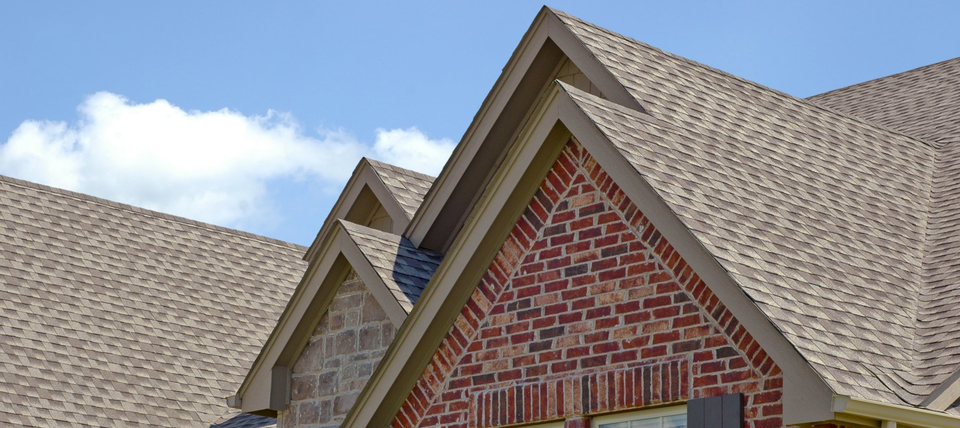What you need to know about Roof Inspections?
What Is a Roof Inspection?
We know, first hand, how annoying it can be when someone keeps telling you that your roof looks messy and that you should have it checked. But the reason why our neighbors or family members tend to bug us about roofs is usually not just about the gutters looking rusted or the roofs being foul to look at.
We genuinely need roofs to prevent rain, sleet, and snow from damaging the rest of our house. So a roof inspection is not a bad idea from time to time.
But when should we inspect our roof? And more importantly, how do we do it? Proper roof care has been the driving force behind our company, Price Roofing, from the very beginning. That’s why we feel it’s almost our duty to educate our readers on what a roof inspection actually is. Hopefully, after reading this article, you will have a general idea of how to make sure your roof stays strong and secure for generations to come.
Some Roof Inspection missteps we have in encountered by homeowners in Naples
The sad truth of the matter is that most homeowners (likely including you) don’t check their roof until they spot the very first leak. And while we definitely should tackle every leak, crack, and cave-in we find, as homeowners we need to be a lot more proactive. In other words, it’s better to be safe than sorry.
Any number of things could warrant a roof inspection. Constant weather shifts can cause water to accumulate in the wooden beams and the walls, which can leave the roof structurally unstable. In addition, mold can grow and insulation can suffer damage, both of which will directly affect our health. And if health and structural issues aren’t enough, there are also the costs of roof repairs. What’s better, paying for a preemptive roof inspection or shelling out huge amounts of money for costly repairs after the damage has been done? We all know the answer to that one.
So, instead of paying tons of money to repair the roof every few years, an annual roof inspection seems like a good idea.
Can’t We Inspect the Roof Ourselves?
Well, yes and no. Obviously, you can check for some obvious signs of damage yourself. For example, a flapping or missing shingle is not difficult to notice. In addition, gutters might be bent or rusted at critical spots. Obvious mold or lichen is also in your untrained ballpark. There’s a general rule of thumb here: if the roof is under 5 years old and there are no leaks in the attic, it’s good to go.
But unless we have some background in roofing or general construction, we can’t spot other, far more critical failings. Really old roofs (ones that are at least a decade old) will definitely require a professional to look into them. In addition, you can discuss the matter with your insurance company if you think that your roof has been damaged by something (or someone) to see if they’ll foot some of the bills.
What Is the Best Time to Have My Roof Inspected?
All roof inspections should be regular, but there’s no need to do it overly frequently. The best time to arrange for an inspection is once every year. A trained professional can spot things you normally wouldn’t even think about. They can show us where leaks might sprout, which part of the construction is likely to fall first, or really anything that looks out of place.
More importantly, a roofer can give us an estimated price of repairs and, if necessary, let us know if we should replace the whole roof or not. A trained eye can save us tens of thousands of dollars.
Of course, there are other times when we should have some roof inspecting done. If our area goes through a violent storm or a heavy wave of snow, we should definitely perform a check since something might happen to compromise the roof’s structural integrity. Hailstorms, in particular, cause the worst damage to roofs when compared to other weather conditions.
Picking the Season
Obviously, you can’t check your roof during the winter (unless it’s an absolute emergency). A proper inspection should take place during a period where the weather is neither too hot nor too cold. Early fall or mid-spring seem like the best options, though we personally lean more towards fall. After all, during this period, you can treat your roof against moss and lichen. Most chemical solutions that experts use to kill off moss takes up to 180 days to properly work.
In other words, it takes as much as half a year just to get rid of moss! But if we treat the problem during the fall, we can scrape off the dead lichen and moss in early spring with a hose and some water.
What do Professional Roof Inspectors Do?
Very broadly speaking, roof inspectors look for every single sign of damage on the roof, as well as near it. Their work includes:
● Checking for leaks
● Looking for any signs of wear and tear from old age
● Spotting damage from windblown debris after a storm
● Spotting organic growth such as lichen and moss
● Looking for shingle installation problems
● Checking for problems created during previous roof repairs
A professional roofer will perform one of four crucial types of roof inspection. Let’s go over them quickly so that you might know what to expect when you hire roofers.
1. Interior Inspection
Most of the damage on (or in) the roof will ultimately lead to the damage of the interior of your house. Once a roofer is on-site, they will check the walls, ceilings, and the attic for different signs of damage. These can include rot, mold, water stains, and other markers that indicate the presence of water.
2. Material Inspection
If you have a shingle roof, the roofer will try to find any shingles that might be curling, loose, or downright missing. The same goes for missing fasteners or damaged flashing. In addition, both rust and moss can damage the shingles, and the water can leave nasty stains. Moreover, a roofer will check each seal and rubber boot around your vent pipes in case they might have any gaps or signs of damage.
One telltale sign that a shingle roof needs to be replaced is the shingle aggregate. Once it starts to gather at the bottom of gutter downspouts or within the roof valleys, you’ll need to act quickly.
3. Structural Inspection
Sometimes, the very structure of the roof can tell us if we need to repair it or not. Trained professionals like our own Price Roofing experts can spot uneven planes and sags in the roof. Gutters, soffits, and fascias need checking as well, as well as chimneys and chimney caps.
It’s especially important for an expert to check your attic venting. Heat and moisture tend to build up if your venting doesn’t work. That can lead to a decrepit roof structure and the formation of ice dams along the edge of the roof.
4. Workmanship Inspection
Not all roofs are created perfectly and errors in workmanship can arise. That’s why a professional roofer is necessary to check if the workmanship of your roof causes any leaks or cracks. One noteworthy example is incorrect flashing, as well as poorly-constructed chimneys and skylights and improperly installed vent pipes.
What Else Can Roofers Consider?
We’ve covered shingle roofs so far, but other popular materials include tiles and cedar. If you happen to have a roof made of these materials, let the roofers know beforehand. Most reputable companies will perform roof inspections on all roofs, but some do specialize in particular types.
A Typical Roofing Analysis
Experts will give your roof a proper once-over during an inspection. After it’s done, they write up a report where they list every potential problem your roof faces. They will usually indicate where the damage is, what has caused it, and what repairs you need to focus on. It’s important that all repairs which they specify are done as quickly as possible. That way, you can avoid getting literally caught with no roof over your head.
The Benefits of a Professional Roof Inspection
People like our experts at Price Roofing handle roofs for a living. They’ve seen it all and know how to approach any problem. So, your first proper benefit of having a roof inspection is that you’ll know your roof inside and out.
In addition, a few years down the road, when you think about replacing the roof, you’ll have a professional opinion to rely on, as well as lots of data on the previous issues.
More importantly, once the repairs are done, you’ll know that your roof is safe for at least the next ten years.
One final benefit of a professional roof inspection is cost-effectiveness. Yes, you have to pay a certain amount of money to professional roofers, but once they inspect your roof, you’ll know what to repair and the most cost-effective way to do it. You’re literally saving wads of money, as well as your own life, by inspecting the roof once a year. So, if you’re interested, contact Price Roofing for an inspection today.
Do You Need a Professional Roof Inspection on Your Home?


